Western Bay of Plenty councillors have stood by their decision and reaffirmed a Māori ward for the district.
Councillors were urged to keep the Māori ward they established in August 2023 at a Western Bay of Plenty District Council meeting on Monday.
The Government directed councils to rescind Māori wards established after 2021 or hold a binding referendum on them at the local body election in 2025.
Te Kāhui Mana o Tauranga Moana forum chairman Reon Tuanau, of Ngāi Te Rangi, said it was hard to be Māori right now.
“We’re just getting kicked left, right and centre just for trying to be a Māori,” he said in the meeting’s public forum.
“We’re just hurt, we just feel mamae, we just want to heal. We want better for our people. We want better for our Tamariki.”
The desire for increased Māori representation remained strong, Tuanau said.
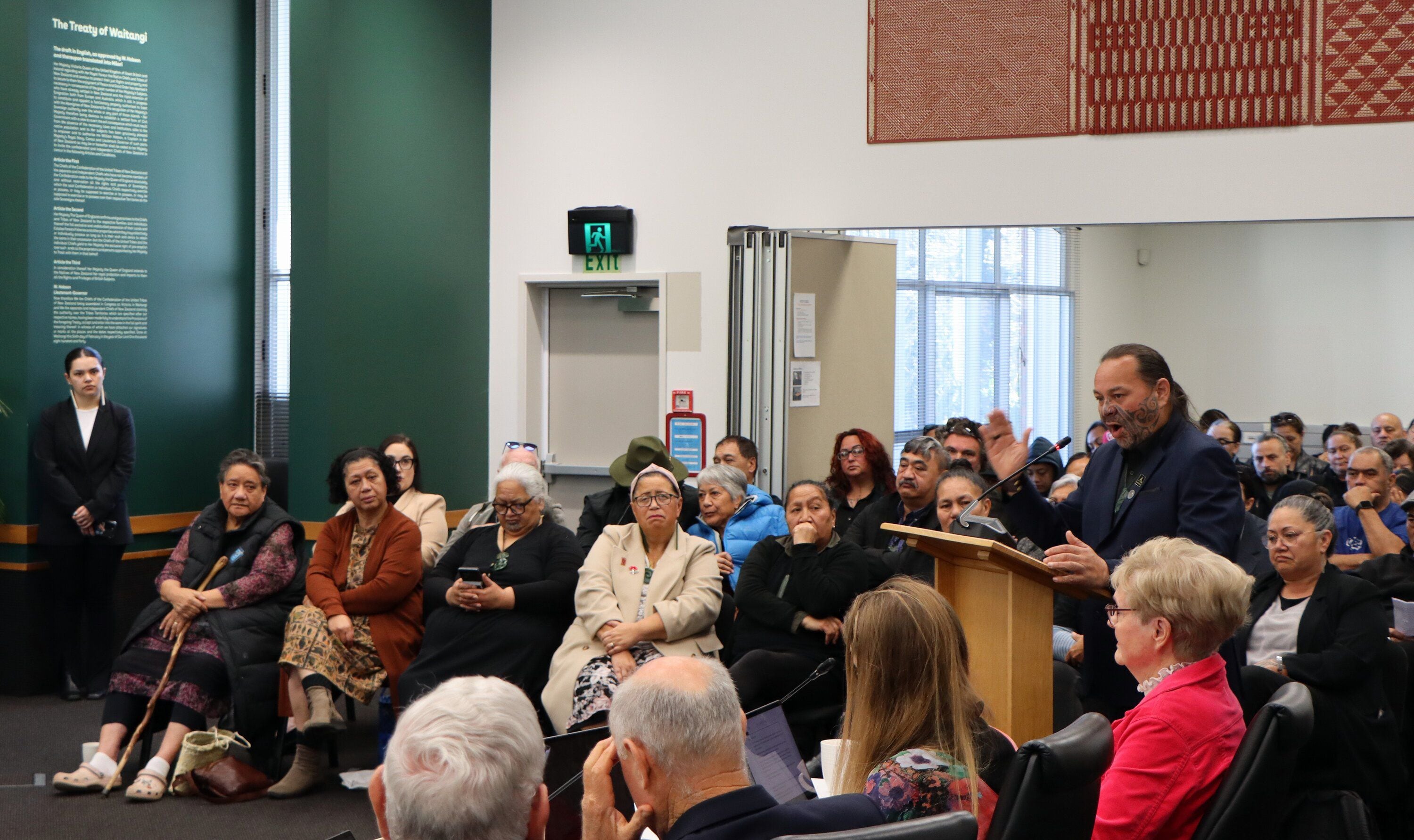
The public gallery was full at the Western Bay of Plenty District Council meeting about reaffirming Māori wards.
“Establishing Māori wards is crucial toward fair and effective representation for all.
“Better representation leads to better governance.
“By paddling, our waka in unison together is how we best achieve the outcome.”
The packed public gallery clapped as Tuanau finished his korero.
Anthony Wihapi asked councillors to stand by their decision.
“Uphold the Treaty, which called for partnership between Māori and Pakeha, not domination of the Māori by your white majority vote.”
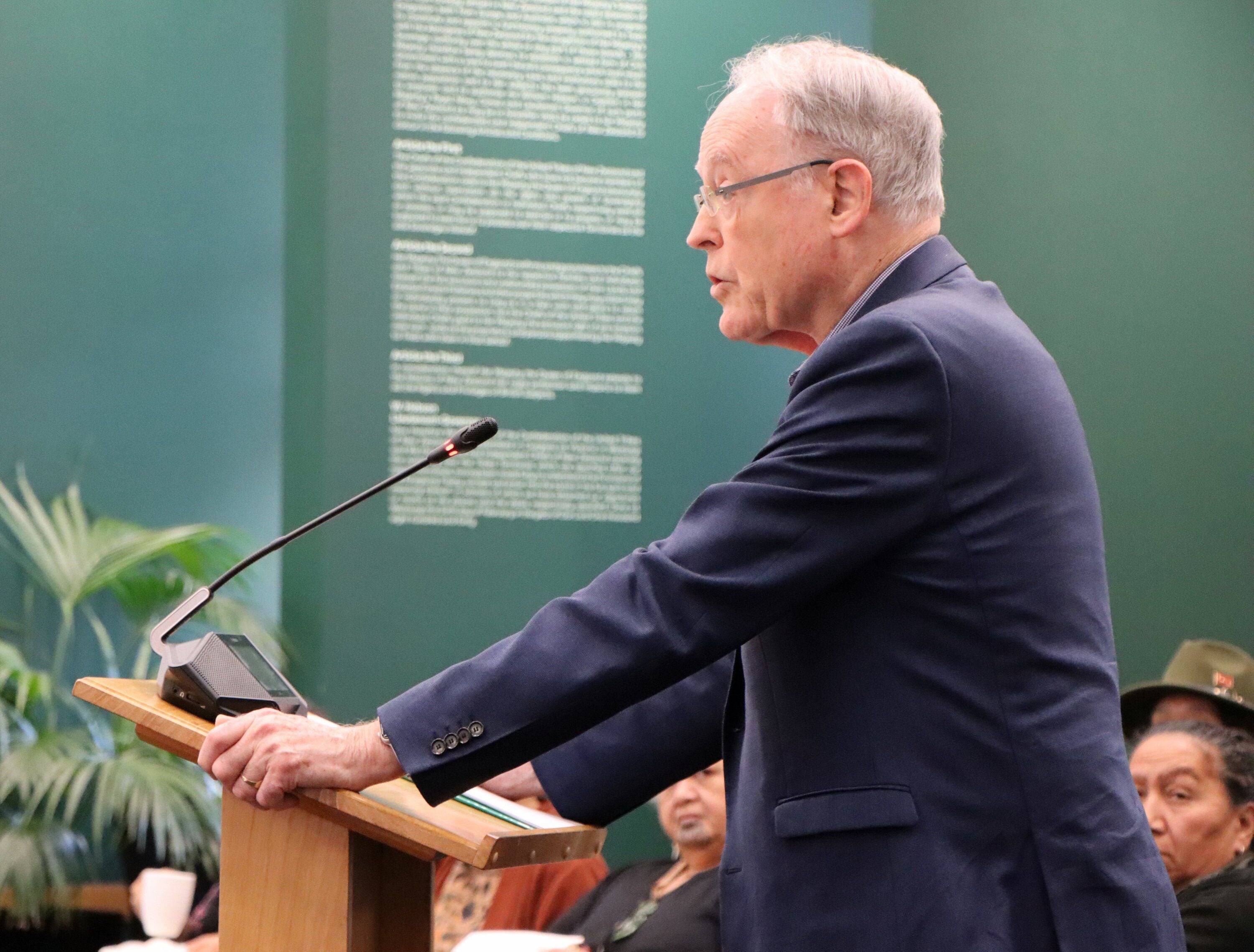
Hobson’s Pledge spokesperson Don Brash said dividing people on race was an “abomination”. Photo / Alisha Evans.
Hobson’s Pledge spokesman Don Brash said: “Dividing people on the basis of race is an abomination”.
“We should be moving towards a country where every citizen has equal constitutional rights.”
The previous poll on Māori wards for the Western Bay of Plenty District Council showed an “overwhelming majority” of 78 per cent were opposed to their creation, said Brash.
Councillor Andy Wichers said Māori wards were an appropriate way of ensuring effective representation across the rohe.
“People need to stand together in unity, and we live in times where there’s forces that are trying to divide us.”
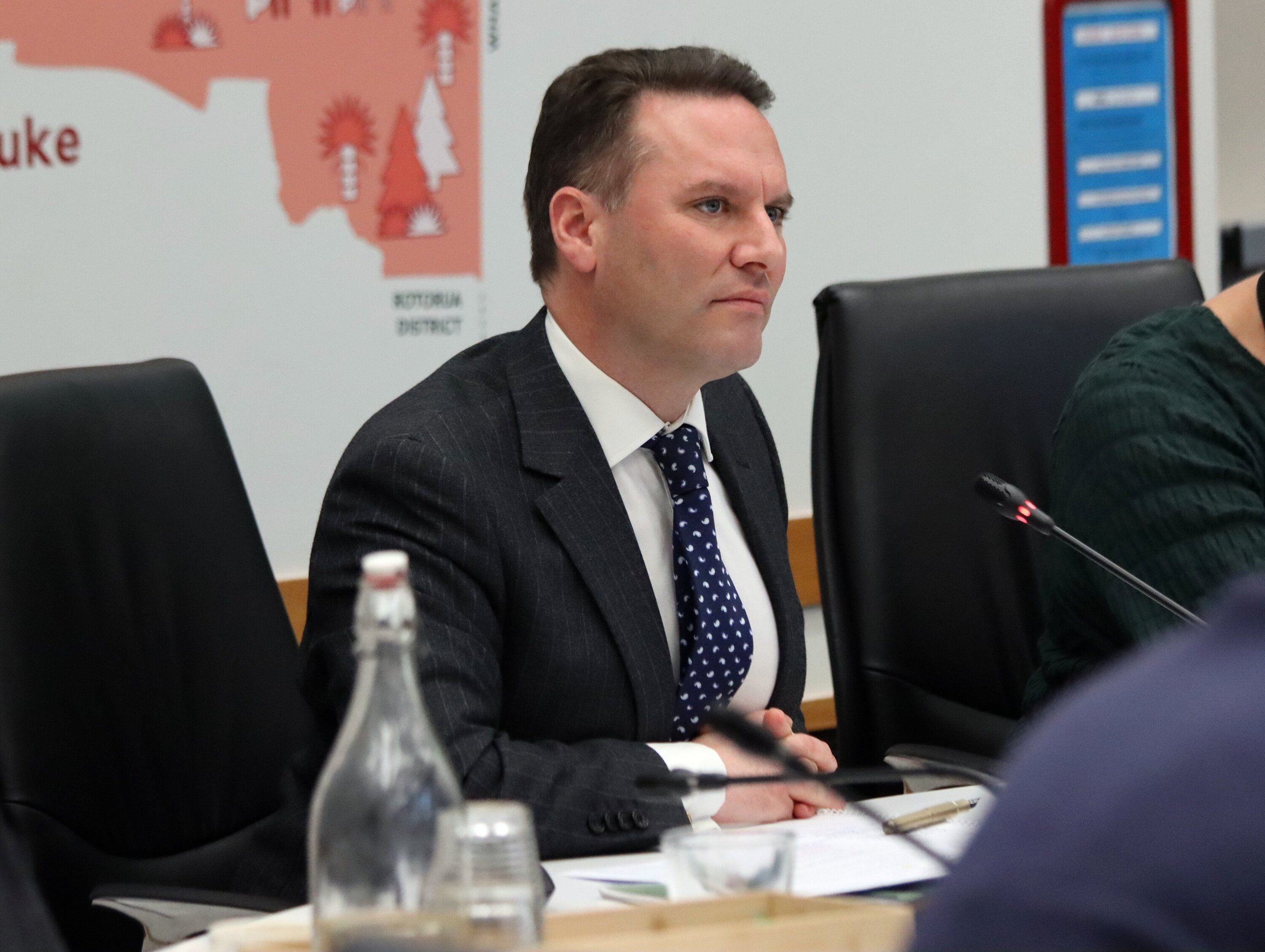
Mayor James Denyer said the council needed to remain faithful to its earlier decision. Photo / Alisha Evans.
Mayor James Denyer said he had reservations putting a future Māori ward councillor in the “invidious position” of being elected then facing their seat being abolished for the next election.
“We have heard loud and clear from our tangata whenua that they want this chance of representation however long it lasts.
“We need to remain faithful to our earlier decision and do the right thing.”
Deputy mayor John Scrimgeour said it was unfortunate the council had to rescind or reaffirm the decision they made last year.
“If it was a good idea last year, I believe it’s a good idea today.”
Councillor Margaret Murray-Benge said the creation of Māori wards was “divisive and undemocratic”.
“It divides the community by race, as if the most important characteristic of each of us is who our ancestors were.”
The council made a “serious effort” to work well with Māori in the district and had two Māori forums and staff that served hapu and iwi well, she said.
She urged council to rescind their earlier decision.
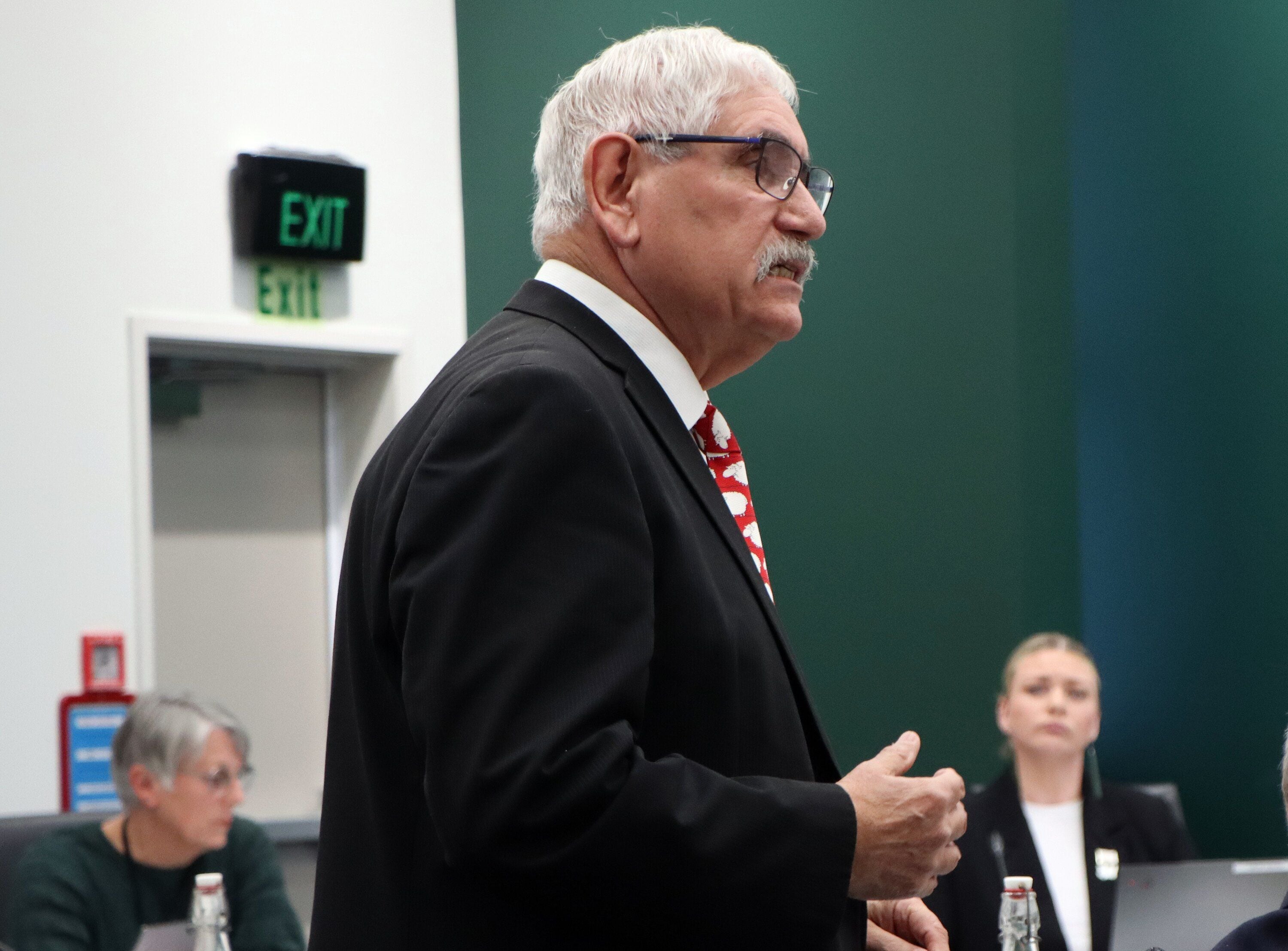
Councillor Allan Sole said Māori wards didn’t bring mana to Māori. Photo / Alisha Evans.
Councillor Allan Sole, who is of Māori decent, said the council didn’t consult when the Māori ward was established, which was a mistake.
“Māori is moving along quite well without the divisive things of wards and seats.
“These wards are not needed. They don’t bring mana to our Māori; they are like a handout.”
Councillor Rodney Joyce said no one loses from the creation of Māori wards no matter the colour their skin.
“Having a guaranteed Māori member would help us be a better council.”
Māori wards were empowering and democratic, he said.
“There is manna for all of us that comes from being elected.”
Councillor Murray Grainger who voted in favour of establishing the ward last year, said the process was rushed and they were prevented from consulting with the community.
“That’s not the way local government is supposed to work this.”
Grainger wanted to avoid the “divisive and unhelpful debate and rhetoric” that would come from a referendum.
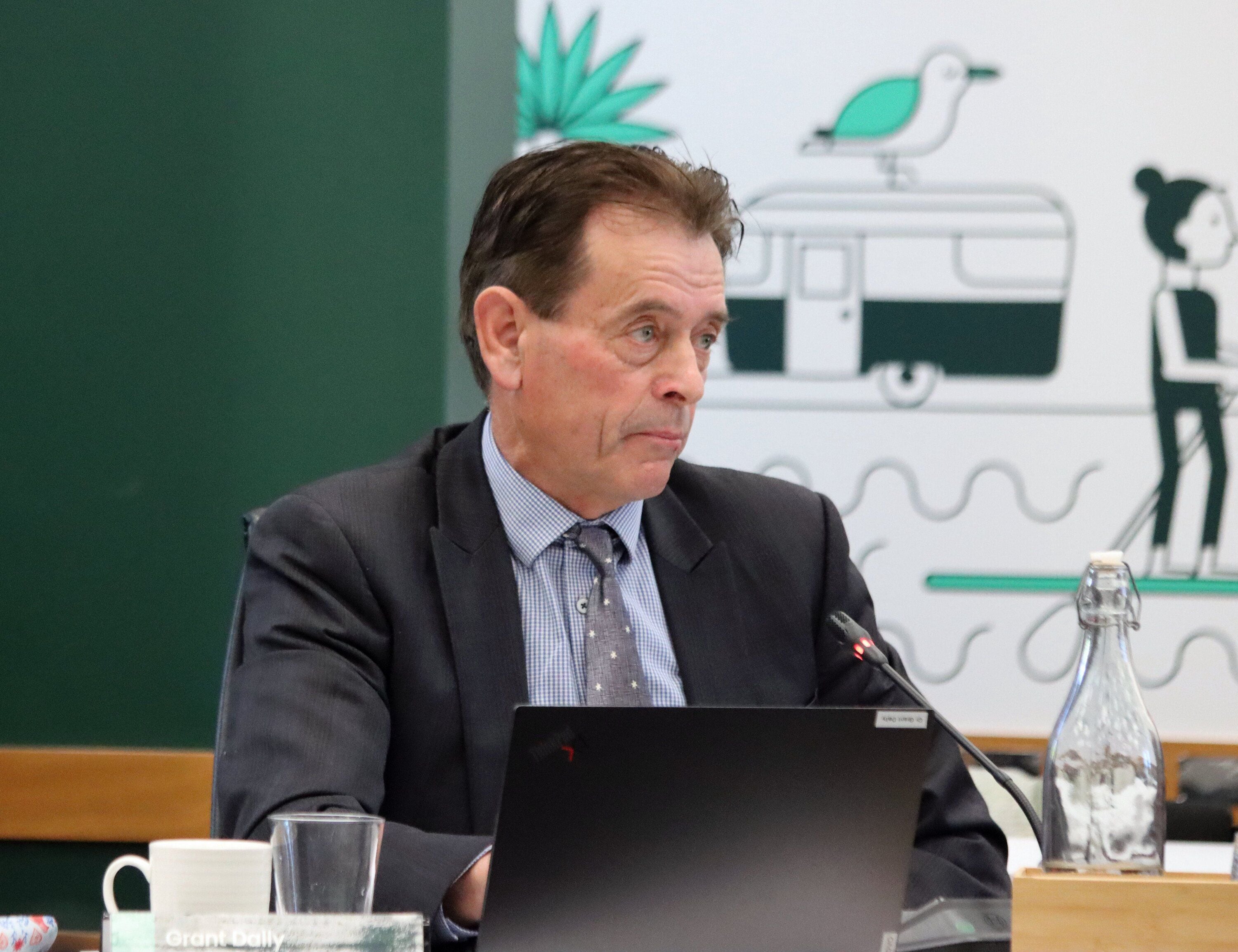
Councillor Grant Dally having Māori wards was a step towards connectivity. Photo / Alisha Evans.
Councillor Grant Dally said if a referendum was held then council would be ensuring people had a say on the issue, even though it was a “blunt instrument” that didn’t allow for discussion.
“Maybe having a Māori ward is a step towards more connectivity, inclusivity and better outcomes for all of us,” said Dally who was visibly emotional while speaking.
Councillor Don Thwaites said it was the fourth time he had voted for Māori wards.
“Creating Māori wards is a plus for all of us and gives us a valuable Māori perspective to strengthen our decision making.”
The council voted to reaffirm the Māori ward with eight in favour and four against.
Speaking after the meeting Tuanau said the vote to keep the ward showed the work Māori had been doing with the council had value.
“The relationship is alive and well.”
The Government imposed referendum wasn’t necessary, he said.
“If Māori are wanting it and they asked for it and we’ve gone through a process to ensure everyone supports it and then that should be it.”
How they voted
For: James Denyer, Grant Dally, Anne Henry, Andy Wichers, Laura Rae, John Scrimgeour, Rodney Joyce, Don Thwaites.
Against: Margaret Murray-Benge, Tracey Coxhead, Allan Sole, Murray Grainger.
LDR is local body journalism co-funded by RNZ and NZ On Air.


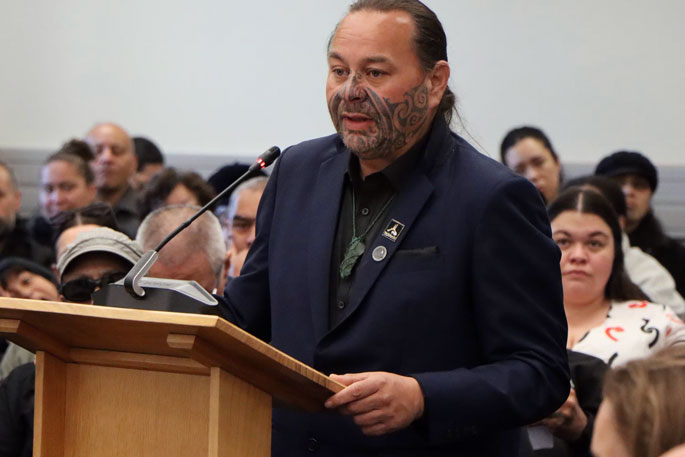

4 comments
How about you let it be
Posted on 03-09-2024 10:16 | By an_alias
Voted on.
Surely LDR would support that
The Master
Posted on 03-09-2024 12:11 | By Ian Stevenson
Interesting comments by some, as recorded above... it says... "Councillor Grant Dally said if a referendum was held then council would be ensuring people had a say on the issue...", actually that is exactly what is required and exactly how democracy should work, the people, the voters get the say, not a raft of woke radicals hidden in some dark cave in Wellington etc.
Then he says... "even though it was a “blunt instrument” that didn’t allow for discussion.". No discussion is actually the issue, no vote for/against was held, the public did not have a say of what and how voting should be and or should change.
The Master
Posted on 03-09-2024 12:20 | By Ian Stevenson
The issue is perhaps described as a decision to have meetings in the evenings and not in the day time as decisions will be better somehow?
The linkage here does not exist... the voters can figure out what a person stands for or not, if needed or not... given time and that the truth is revealed, then the right answer will follow. It is integrity/ability/knowledge that matter, not which way the wind blows....
Democracy
Posted on 04-09-2024 19:47 | By Duegatti
We either have a democratic system of Government or we don't.
There are no half measures, it's similar to being a little bit pregnant.
One man, one vote.
There is no such thing as tyranny of the majority. Many successful Maori MP's prove that.
That's the immutable bottom line, councils will obfuscate over that to their peril.
Leave a Comment
You must be logged in to make a comment.